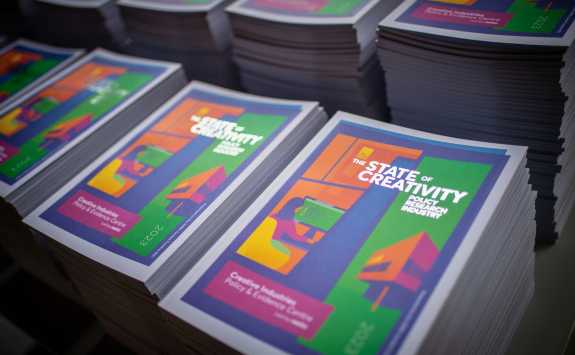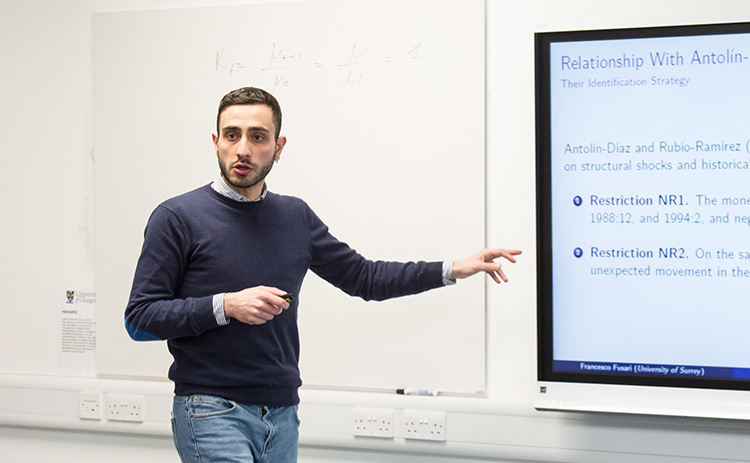Economics Research
Research in the Economics group is refreshingly broad. It spans macroeconomics and microeconomics; the applied and the theoretical; the contemporary and the historical; and a range of fields, countries, and methods.
The Economics group aspires to conduct research at the frontier of our discipline. A substantial portion of our research is also of relevance to other disciplines, such as politics, medicine, and history.
We strive to advance both theoretical and applied economics. We aim to produce research of interest and use to policymakers at various levels of government and in central banks, both within the UK and abroad.
Energy transition and climate-smart agriculture in Vietnam
- Dr Smriti Sharma, Newcastle University Business School
- Danida Fellowship Centre, Ministry of Foreign Affairs of Denmark
This interdisciplinary project explores sustainable solutions for agriculture and energy transition in Vietnam. By addressing climate challenges and resource management, the research aims to support long-term environmental and economic resilience.
GCRF 'Living Deltas' hub
- Professor Susan Chilton - Economics, Newcastle University Business School
- Dr Smriti Sharma - Economics, Newcastle University Business School
- Professor Darren Duxbury - Finance, Newcastle University Business School
- Natural Environment Research Council (NERC)
This collaborative project addresses climate challenges in delta regions, working with academics across disciplines to explore sustainable livelihoods. With rising sea levels and pollutants threatening delta populations, the research informs global strategies for food security and economic resilience.
Empowering women’s craft collectives in Rajasthan (India)
- Dr Smriti Sharma, Newcastle University Business School
- International Initiative for Impact Evaluation
This project supports women-led craft enterprises in India, fostering entrepreneurship and economic empowerment. By improving skills and market access, the research promotes long-term self-reliance for rural women.
Estimating the influence of headteachers
- Professor Nils Braakmann, Newcastle University Business School
- Nuffield Foundation
This project examines how headteachers shape school performance, staff composition, and student outcomes. Using advanced econometric modelling, it offers evidence-based insights to inform English school policies.
Childcare, mental health, and education: addressing inequality through policy counterfactuals
- Dr Lena Janys, Newcastle University Business School
- Leverhulme Trust Mid-Career Research Fellowship
This ongoing research evaluates the impact of policy interventions on reducing inequalities in childcare, mental health, and education. Using advanced counterfactual simulations, it offers evidence-based insights to guide more effective public policies.
Funding and grants
Members of our Economics subject group have secured funding from prestigious external bodies. This reflects the breadth and impact of our research. Previous funders include:
- British Academy
- Leverhulme Trust
- NIHR
- ESRC
- Nuffield Foundation
- Danida Fellowship Centre
- OECD
Our researchers have successfully led or collaborated on projects as principal and co-investigators. They are advancing knowledge across diverse areas such as:
- climate change
- inequality
- education
- labour markets
PhD programme
Our PhD in Economics cultivates rigorous scholars who can advance both academic knowledge and practical applications.
We are a research-intensive and generalist economics group. We employ both theoretical and applied methodologies, and offer expertise across:
- microeconomics
- macroeconomics
- econometrics
Our vibrant research community hosts regular seminars. We provide opportunities for PhD students to present their work in supportive settings.
We offer supervision across a broad range of topics. Prospective students should explore our staff pages for potential supervisors.
Research activity
Access the Newcastle Experimental and Behavioural Economics Lab
We welcome external expressions of interest. For further information, please contact Dr. Till Weber.





